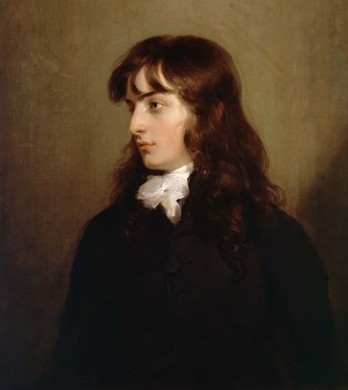 notAmos Performing Editions 1 Lansdown Place East, Bath BA1 5ET, UK +44 (0) 1225 316145 Performing editions of pre‑classical music with full preview/playback and instant download |
Choir offer (PDF), €4.00 for 12 copies Buy this item
Printable cover page (PDF), €0.00 for unlimited copies Download this item
If you have any problem obtaining a PDF, please see our help page. If that does not resolve the issue, please click here.
Click on the illustration to display a larger version
For licensing/copyright information please click here
| Enquire about this score |
| About William Linley |
| Full Catalogue |
| About us | Help, privacy, cookies |
| About William Linley |
| Full Catalogue |
| About us | Help, privacy, cookies |
From "Flights of Fancy, in six new glees", a youthful collaboration between Linley and Leftley (whom I surmise to have been his contemporary at St Paul's School). Leftley died young, in 1797, (I cannot ascertain whether this volume of glees was published posthumously) and Linley seems to have championed his memory for the rest of his own life, compiling a volume of his friend's writings together with an account of his life some twenty years later. In an age when mortality amongst the young was common, Linley appears to have experienced more bereavement than most: by the date of these glees William had recently lost his father and ten siblings (including Elizabeth, wife to Sheridan and a renowned singer, and Thomas, composer, exact contemporary and friend of Mozart, and the most promising composer lost prematurely to English music). "Flights of Fancy" is remarkable as an early example of a collection of songs with a common theme. Unfortunately, the engagement with the theme of pseudo-Shakespearean Faerie (a lifelong feature of Linley's work) reads more Whimsical than Phantastikal in the modern post-Flower Fairy world; The prototype (horribile dictu) of the Prog-Rock concept album.
Lyrics: Charles Leftley
Would you the fairy regions see?
Hence to the greenwoods run with me;
From mortals safe the livelong night,
There countless feats the fays delight;
Where burns the glowworm's lamp so blue;
One gives each flower its proper hue.
While near the busy huswife weaves
Ribands of grass and mantling leaves
Some teach young plants with grace to move,
Some lead the woodbine to her love,
Some strew the shores with shells and sand,
While others pilot weeds to land.
By moonlight these their labours see.
Then follow me, follow me;
And the chaffer's bugle our guide shall be.
Would you the fairy regions see?
Hence to the greenwoods run with me;
From mortals safe the livelong night,
There countless feats the fays delight;
Where burns the glowworm's lamp so blue;
One gives each flower its proper hue.
While near the busy huswife weaves
Ribands of grass and mantling leaves
Some teach young plants with grace to move,
Some lead the woodbine to her love,
Some strew the shores with shells and sand,
While others pilot weeds to land.
By moonlight these their labours see.
Then follow me, follow me;
And the chaffer's bugle our guide shall be.

